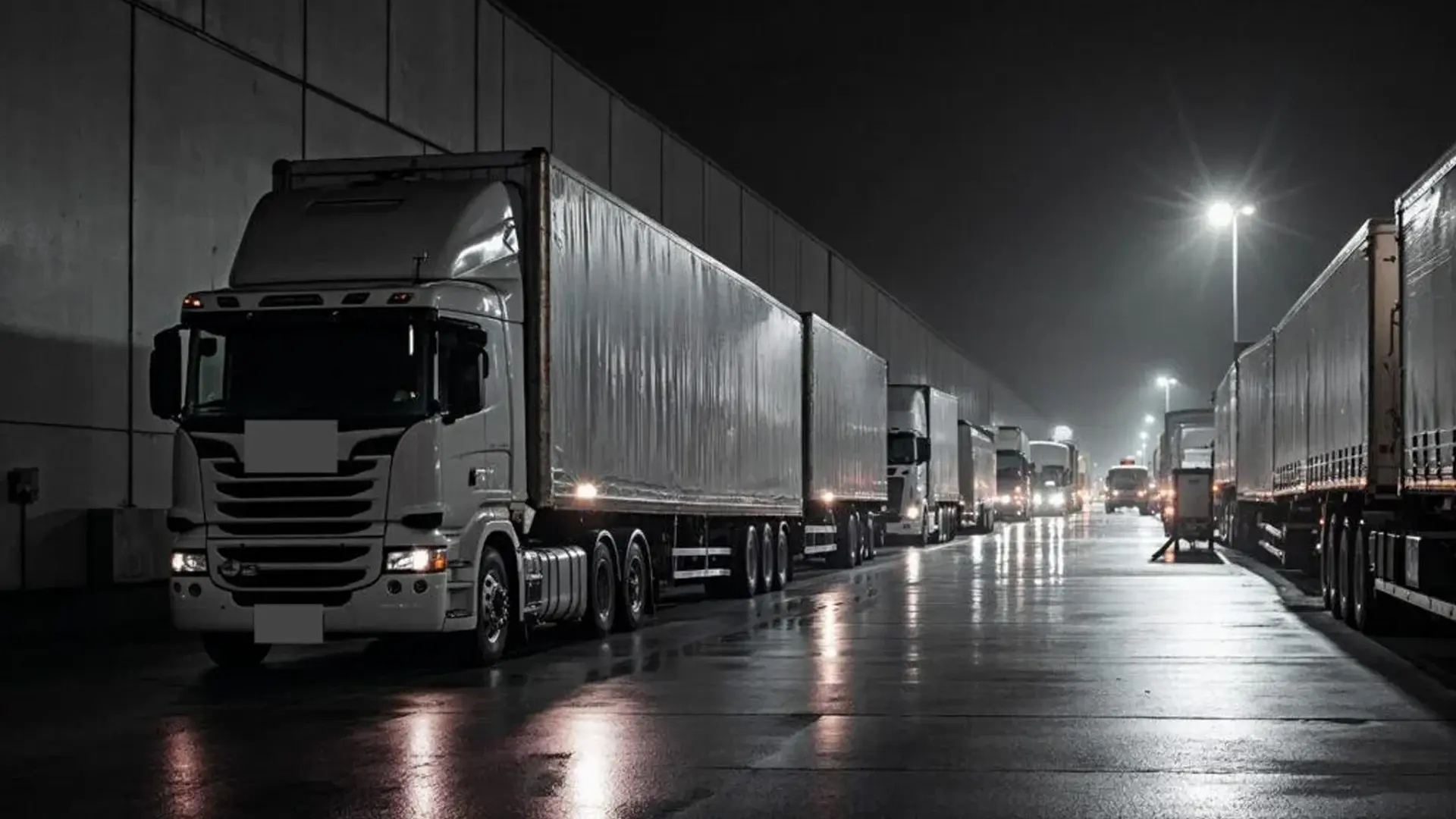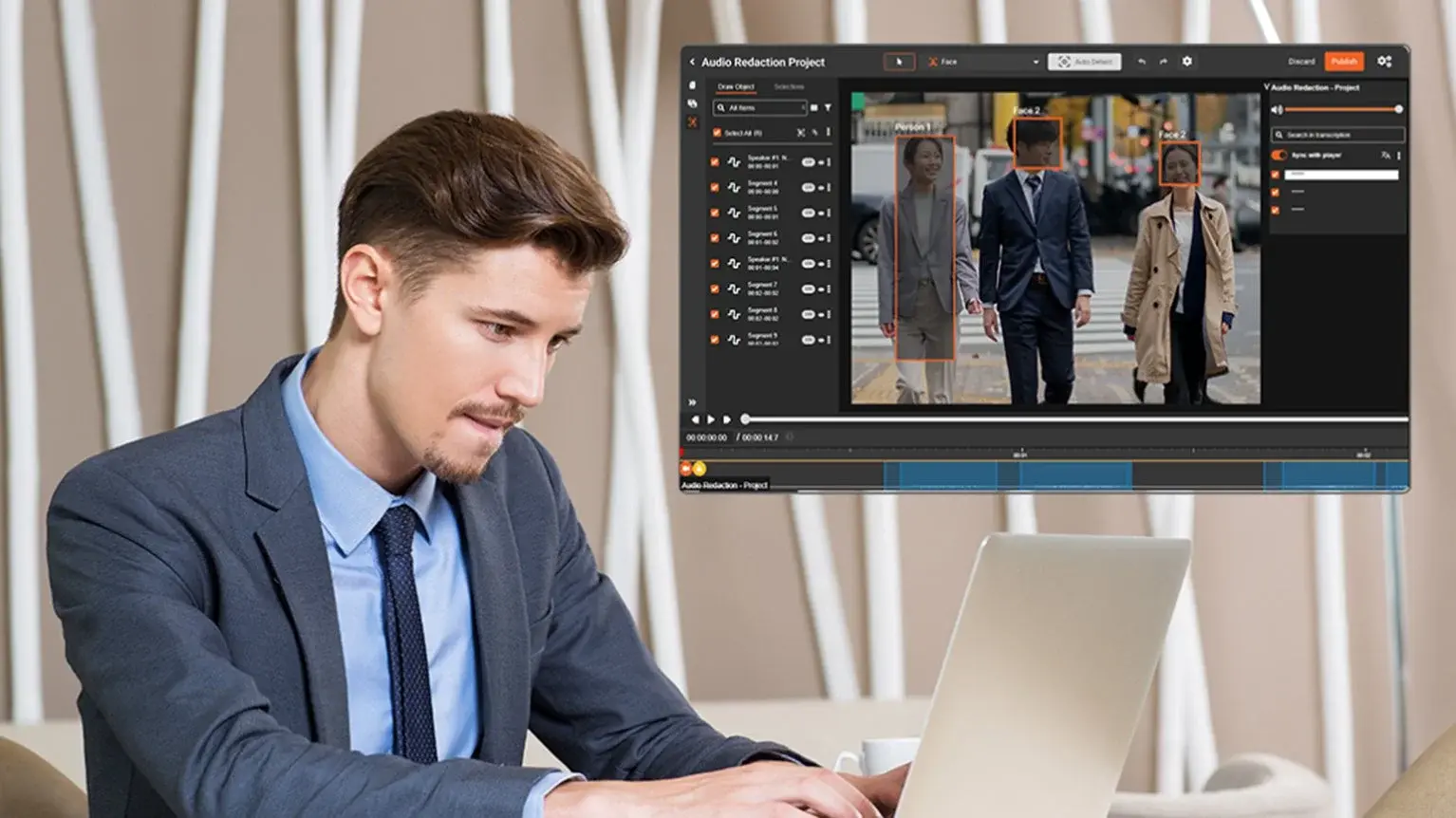Ensuring Privacy and Compliance with Video Redaction for Transport
by Malaika Batool, Last updated: February 24, 2026, ref:

You’re managing a large fleet of vehicles, constantly capturing video footage to improve safety, streamline operations, and keep an eye on your valuable assets.
You know that video evidence is critical for accountability, but the footage you capture is full of sensitive data, faces, license plates, and addresses, each a potential risk if not managed correctly.
Sound familiar? For transportation companies, the rise in video surveillance brings with it a mountain of privacy and compliance issues. Mismanagement of this footage can lead to severe financial penalties, legal battles, and a tainted reputation.
You’re likely well aware of privacy regulations like GDPR or CCPA, but even if compliance is top-of-mind, video redaction can still feel like an overwhelming process. What happens when you need to produce a video clip quickly? How do you ensure every sensitive detail of the 3.54 million truck drivers currently present in the US is blurred? And, let’s face it, this constant balancing act between security and compliance can make any fleet manager, compliance officer, or IT director lose sleep.
So, how are leading transportation companies rising above these challenges? Through intelligent video redaction services that enable them to redact sensitive information efficiently and at scale, keeping data safe and teams compliant.
What’s at Stake Without Proper Video Redaction?
The reality is that video footage is only valuable if it can be securely shared. But sharing unredacted video footage presents real risks:
- Compliance Nightmares: Transportation companies are held to stringent data protection standards, such as GDPR in Europe or CCPA in California, with penalties for non-compliance under GDPR reaching up to 10 million euros or 2% of the company’s global turnover, whichever is higher. Every captured face, license plate, or sensitive piece of information in your footage represents a potential compliance violation waiting to happen.
- Legal and Financial Liabilities: Any mishandling of video footage could lead to lawsuits, loss of business, or even public backlash. In a worst-case scenario, the legal costs of data mishandling can lead to overwhelming fines and a tarnished reputation that takes years to repair.
- Loss of Trust: In a digital age where privacy is at the forefront, your clients and customers trust you to handle their information with care. Exposing their information, even unintentionally, can erode this trust and push them toward competitors who better prioritize privacy.
Now, imagine a solution that could ease all these pressures without disrupting your operations or adding hours of manual work for your staff.
The Role of Video Redaction Services in Transportation
Video redaction services are designed to address these exact concerns, allowing transportation companies to make use of their video assets securely, compliantly, and confidently. Let’s break down how these services tackle each key pain point.
Compliance Secures Your Data and Strengthens Your Business
Privacy regulations like GDPR and CCPA set high standards for how personal information is collected, stored, and shared. For transportation companies, adhering to these standards is particularly challenging when it comes to video footage, which often captures identifiable details.
Here’s where video redaction services make a real difference. Using automated tools, these services can detect faces, license plates, and other sensitive information and redact them in seconds. Instead of combing through hours of footage manually, automated redaction software streamlines this process, allowing you to comply with privacy standards without wasting precious time or resources.
Beyond just speeding up redaction, automated services reduce human error, ensuring that every detail needing redaction gets the necessary attention. This automated precision means you can breathe easy, knowing your company remains in compliance even with strict privacy laws.
Efficient Fleet Management: Security and Privacy Without Sacrifice
Fleet managers, you’re on the front lines of safety, efficiency, and compliance. When you deploy video surveillance to protect your fleet and improve driver accountability, you’re often balancing these benefits with the risks associated with handling sensitive footage. So, how can you make sure every sensitive detail is redacted without wasting hours of manpower?
Video redaction services integrate directly into your fleet management systems, making it easy to redact sensitive information on demand. Instead of needing a separate process or tool, redaction becomes part of your everyday workflow. Imagine being able to access, redact, and share footage across departments without jumping through hoops. This flexibility empowers you to get the insights you need while maintaining data privacy.
Security: Protecting Your Assets, Inside and Out
For security managers, surveillance video is invaluable. It helps you keep your assets secure, monitor potential security breaches, and investigate incidents effectively. But without video redaction, every frame captured could be a potential liability.
Advanced video redaction services help to strike the perfect balance. You can retain crucial footage for security purposes without revealing any unnecessary personal information. This capability means that if footage is ever shared with third parties or investigators, you’ve already minimized the risk of data exposure. It’s a proactive approach that keeps your operations safe and your data secure.
Overcoming the Challenges of Implementing Video Redaction Services
So, why isn’t every transportation company using video redaction yet? Simply put, implementing this technology can seem intimidating.
- Integration into Existing Systems: Adopting new technology, particularly something as sensitive as redaction software, raises concerns around integration. Will it work with existing cameras? What about the current storage systems? However, modern video redaction services are designed to fit seamlessly into your existing IT infrastructure. With cloud-based and on-premises options available, you can choose a solution that meets your specific needs.
- Training and Adoption: No one wants to spend weeks learning a new tool. But video redaction software doesn’t have to be complicated. The best providers offer intuitive interfaces that minimize the learning curve, allowing your team to get up and running quickly.
- Scalability: Transportation companies manage large volumes of video footage daily. A redaction solution that works well on a small scale may not perform as well with thousands of hours of footage. Fortunately, modern redaction services are scalable, with automated solutions capable of handling large workloads efficiently.
Future-Proofing Your Operations with Intelligent Video Redaction
With technology advancing at breakneck speed, the transportation industry is constantly evolving, and so are the standards for privacy and security. Adopting intelligent video redaction now positions you to stay ahead of future regulatory changes, giving you a head start as new privacy laws inevitably emerge.
Automated video redaction services are not only a solution for today’s challenges but a strategic investment in tomorrow’s privacy and security landscape. This proactive approach keeps you ahead of competitors who may still be struggling with manual processes, positioning you as a leader in data responsibility and compliance.
People Also Ask
What is video redaction, and why is it necessary for transportation companies?
Video redaction is the process of obscuring sensitive details such as faces, license plates, and addresses in video footage. For transportation companies, video redaction is necessary to comply with privacy regulations like GDPR or CCPA, reduce legal risks, and maintain customer trust when sharing or storing video evidence.
Can video redaction be automated for transportation companies?
Yes, video redaction services can be fully automated using intelligent software that detects and blurs sensitive information within seconds. Automated video redaction helps transportation companies save time, reduce human error, and handle large volumes of video footage efficiently while ensuring compliance.
What are the regulatory requirements for managing video footage in transportation?
Regulatory requirements for video footage often include strict data privacy laws such as GDPR in Europe and CCPA in California. These regulations require transportation companies to protect personal information captured in video footage and apply safeguards like redaction before sharing or storing data.
How does video redaction improve fleet management?
Video redaction improves fleet management by making surveillance footage safe to share and analyze without exposing personal details. By integrating redaction into fleet management systems, companies can use video evidence for safety and accountability while staying compliant with data privacy regulations.
What is the difference between manual and automated video redaction?
Manual video redaction requires staff to edit footage frame by frame, which is time-consuming and prone to error. Automated video redaction uses AI-powered tools to quickly detect and blur sensitive details, making the process faster, more accurate, and scalable for large fleets.
How do video redaction services integrate with existing IT systems?
Modern video redaction services are designed to integrate seamlessly with existing IT and video management systems. They can be deployed through cloud-based platforms or on-premises solutions, ensuring transportation companies can adopt the technology without disrupting operations.
Why is compliance important in video redaction for transportation companies?
Compliance in video redaction is important because it ensures that sensitive information captured in footage is protected under laws like GDPR and CCPA. Without proper compliance, transportation companies risk severe financial penalties, legal liabilities, and loss of customer trust.
Jump to
You May Also Like
These Related Stories
.webp)
Top 7 Video Redaction Software for PII Redaction (Reviewed in 2025)
.webp)
Top 5 Best Redaction Software for Redacting Sensitive Data in Files


No Comments Yet
Let us know what you think